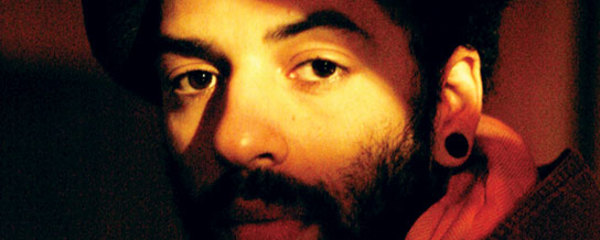James Spooner’s New Documentary
If you haven’t heard of Afro-Punk (Image Entertainment, $19.99), it’s not James Spooner’s fault. He’s […]
James Spooner’s New Documentary
If you haven’t heard of Afro-Punk (Image Entertainment, $19.99), it’s not James Spooner’s fault. He’s […]

If you haven’t heard of Afro-Punk (Image Entertainment, $19.99), it’s not James Spooner’s fault. He’s worked tirelessly since his documentary’s 2003 completion to personally screen the film in almost 300 locations nationwide. Afro-Punk is an exhaustive and deeply personal exploration of the intersection between black and punk culture in America–with alienation and racial identity as its prevalent themes. Interviewed, filmed, and edited by Spooner alone with little money and even fewer frills, Afro-Punk has been widely received and critically lauded (taking home more than 40 awards at various international film festivals), yet it’s never been theatrically syndicated or distributed because of trouble clearing its many images and music samples. After three years of building a movement around the message, Afro-Punk finally sees release on DVD, and we caught up with James Spooner to ask him about it.
XLR8R: It must feel really good to have the film finally out on DVD.
James Spooner: Yeah, totally. It’s really difficult to have a film like this that touches so many people personally; they really want to take it home with them and share it with their families. If nothing else it’s wonderful to be able to say, “Yeah, you can actually order it now.”
What would you have felt like if this film were available to you as a kid?
From the beginning I made the movie I needed to see when I was 14. I have people say to me all the time, “Damn, I wish I would have seen this when I was a kid. I wouldn’t have been so fucked up for so long.” There’s a certain sense of validation people get from finding out they’re not alone.
The film presents snapshots of various people and their experiences, but it never really offers any easy answers about the issues it broaches. Do you look back on the film and feel like you’ve been able to draw some conclusions, or did you intentionally leave it open so folks could draw their own?
If I had the answer, I wouldn’t be some kid trying to make a movie. I would be one of those Nobel Peace Prize winners. There isn’t an answer that works for everybody. For myself, I felt like talking it out was the answer. Now it’s damn near seven years since I started the film and I’m not dealing with any of the same issues I was dealing with then. I’m completely comfortable. I’ve gone through everything from having self-hate because I was not black enough or not white enough, to hating white people because they allowed me to live in a society like this, to blaming everybody. I’m good now. I’ve come to a place where I can accept that I’m biracial: I have a valid black experience and I also have a valid white experience. I think the only way I could get through all of that was through dialogue.

